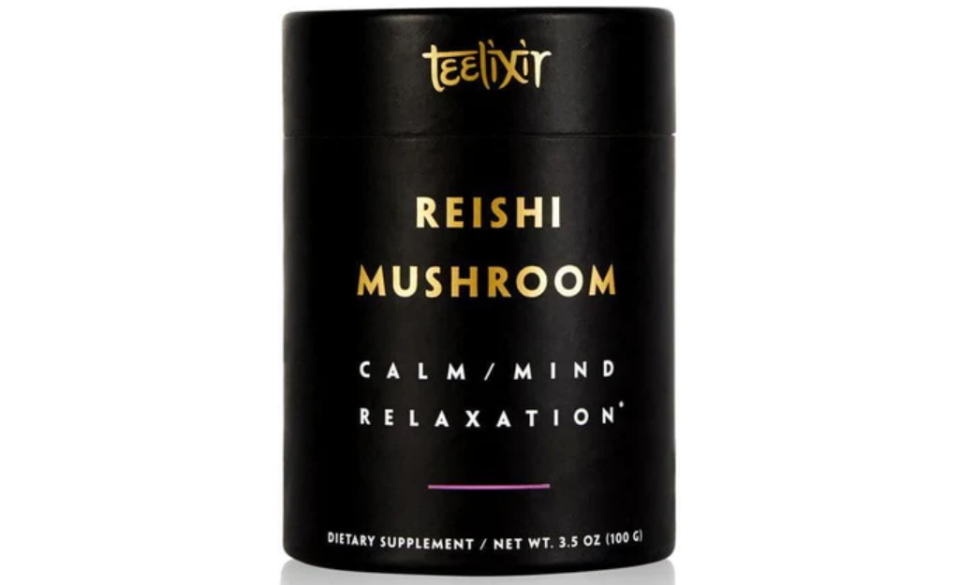Read And Know More About Reishi Mushroom | Clear Your Doubts
- Written by NewsServices.com

Numerous herbs and mushrooms are used in traditional Eastern medicine. It's interesting how the reishi mushroom seems to be so well-liked and considered the best to cure several health issues.
In addition to health benefits, it includes enhancing the immune system and inhibiting the growth of cancer cells. However, its security has been called into question as of late. Still, many suggest it is safe and healthy to consume.
So, let’s make it clear for you. Here in this post, you will learn about the numerous benefits of using reishi mushrooms.
What are Reishi Mushrooms?
Rare and delicious, reishi mushrooms are found only at the base of deciduous trees. Claims have been made that reishi mushrooms can help with a wide variety of health issues, including boosting the immune system, combating cancer, and relieving the symptoms of a wide variety of other diseases.
The immune-enhancing and cancer-preventive properties of reishi mushrooms have made them famous. However, reishi mushrooms' benefits have not been confirmed by scientific research. And some of its benefits are m mentioned below:-
-
Managing Blocked Arteries
-
Reducing Mental Strain
-
Cancer Patients Experience Less Fatigue
-
Removal Of Stomach Ulcers
-
Reducing The Severity Of Cold Sores And Genital Herpes
-
Hepatitis B Treatment
-
Reducing The Discomfort Of Asthma And Bronchitis
-
Therapeutically Reversing Liver Disease
-
Treatment For Reducing Shingles Discomfort
-
Managing Kidney Disease
-
Improvement in immunity
-
Eliminating Viral Infections
-
Helping Deep Sleep
Are There Worries About How Safe It Is To Use?
Reishi mushroom extract has shown promising results in animal studies, and oral use for up to a year may be safe. Whole reishi mushroom powder may be safe for consumption for up to 16 weeks. Side effects of ingesting Reishi mushrooms include lightheadedness, dry mouth, itchiness, nausea, stomach upset, and rash.
Cautionary Statements & Additional Warning
There is not enough reliable data to determine whether or not reishi mushroom is safe to use during pregnancy or breastfeeding. Keep away from it to be on the safer side. As we never know how the body will react because of hormonal changes during this phase of life.
Certain bleeding disorders can be exacerbated by taking reishi mushrooms at high doses.
Patients who take large amounts of reishi mushrooms before or during surgery may experience an increased risk of bleeding. Please discontinue the use of reishi mushrooms at least 2 weeks prior to any planned surgical procedures. Despite the fact that reishi mushrooms have benefits, they also have their drawbacks (in certain situations).
Can We Take Reishi Mushrooms With Other Supplements?
Researchers have looked into how reishi mushrooms lower blood pressure. Taking it with other supplements that have the same effect could cause your blood pressure to drop dangerously low. Andrographis, casein peptides, niacin, and stinging nettle are all supplements that can help with this.
Reishi, or red mushroom in Australia, a herb and supplement, has helped in lowering blood sugar levels. Combining its use with other supplements that have a similar effect could lead to dangerously low blood sugar levels. Several supplements, such as aloe, cassia cinnamon, chromium, and prickly pear cactus, have this effect.
Some herbs and supplements can inhibit blood clotting; for example, the use of reishi mushrooms may increase the risk of bleeding. If this supplement is taken with others that have similar effects, it could make some people more likely to bleed. Some supplements that have this effect are garlic, ginger, ginkgo, nattokinase, and Panax ginseng.
How Much Can You Consume?
Adults usually take between 1400 mg and 5400 mg of reishi mushroom twice a day. Extract from the reishi mushroom has also been used in smaller amounts. Talk to a doctor to figure out how much you should take for your condition.
You should always talk to your doctor or qualified healthcare provider before making any changes to your health routine, including starting a new medication.





